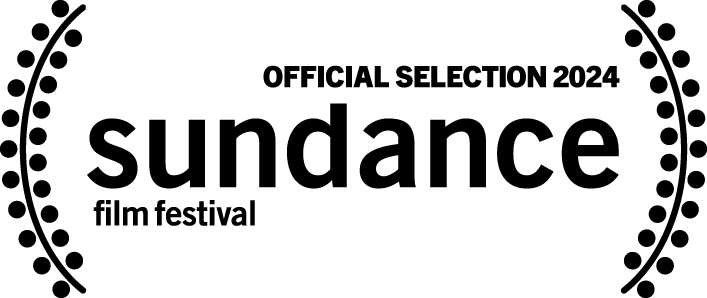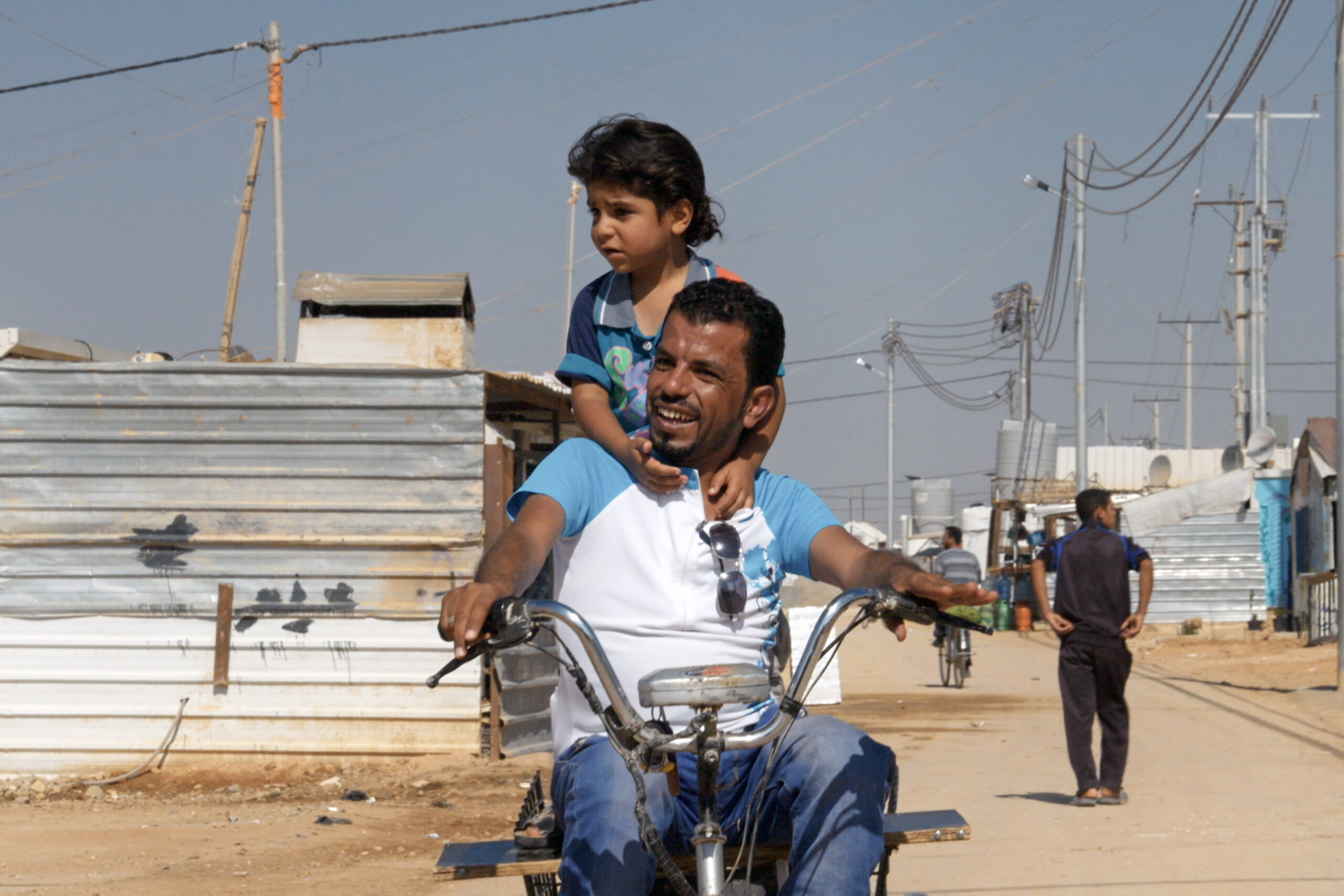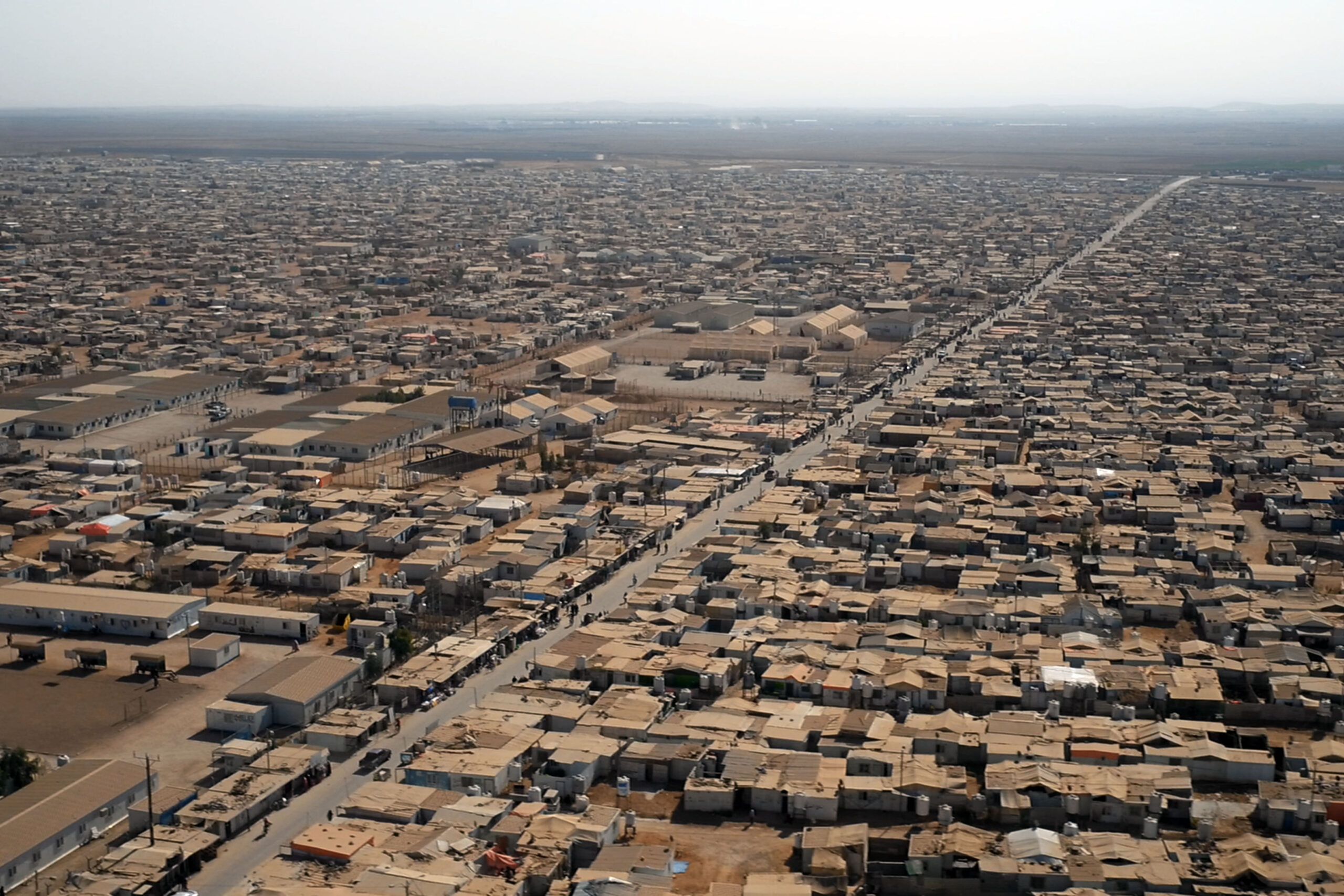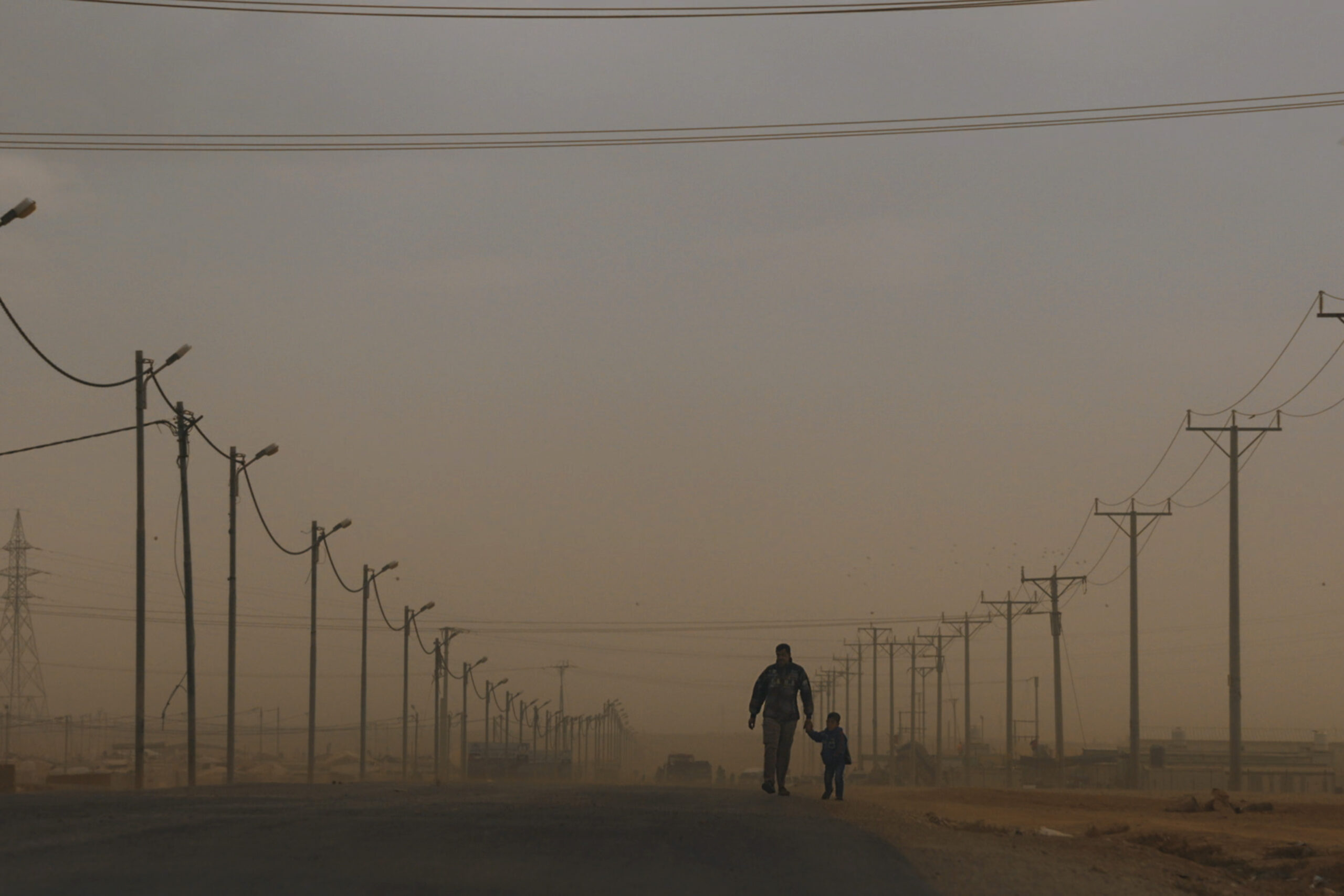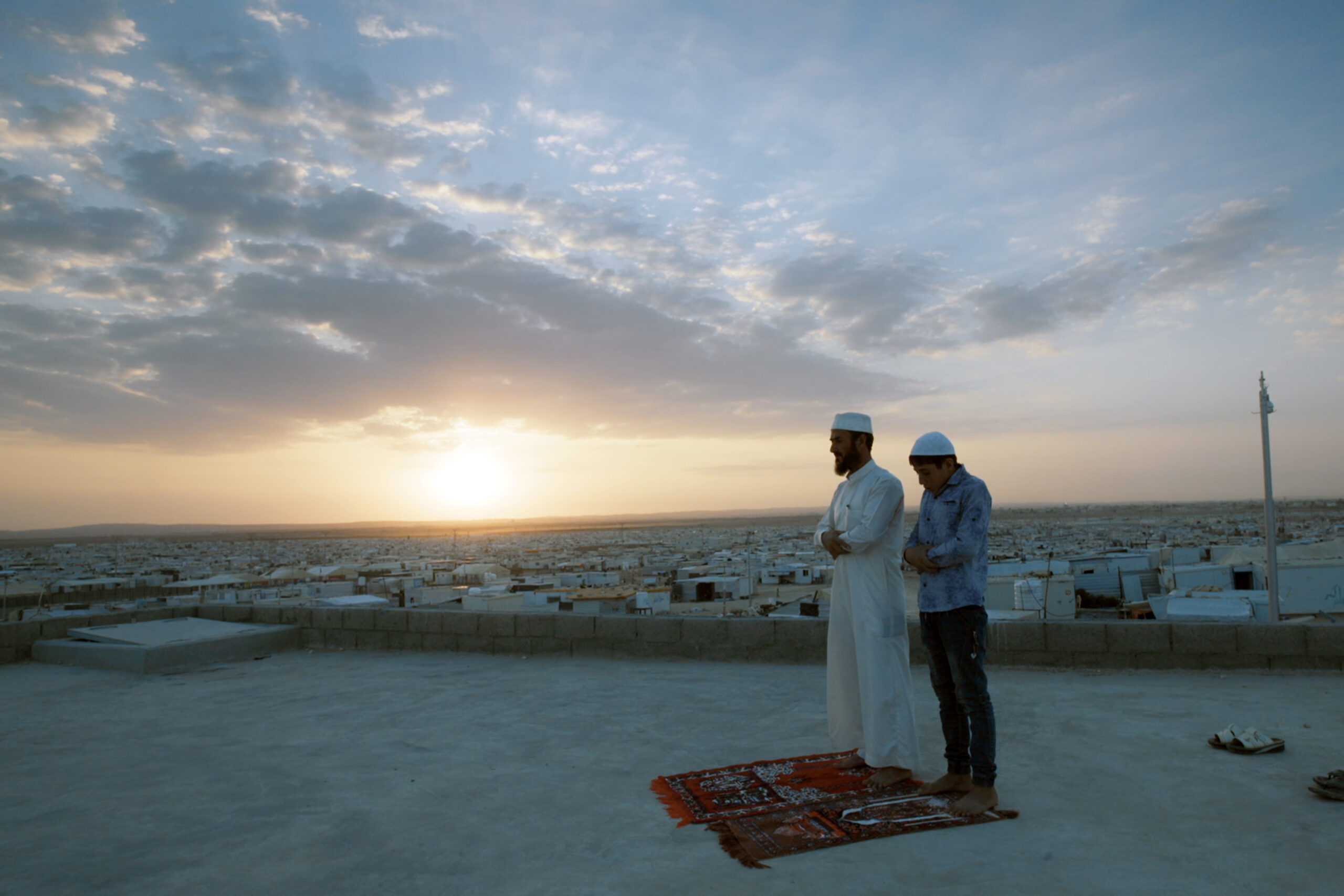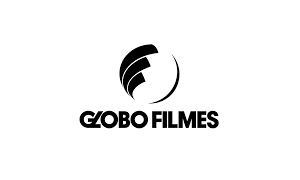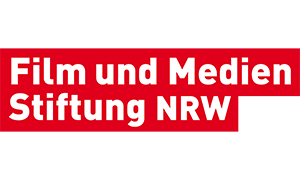Zaatari – Memories of the Labyrinth
Zaatari is the second biggest refugee camp in the world. In the middle of the Jordanian desert live 80,000 Syrians who have lost everything and are now trying to make themselves a home. no one knows for how long and what will come next.
The Zaatari refugee camp was established in the middle of the Jordanian desert in July 2012 and quickly became the fourth largest city in Jordan. None of Zaatari’s 80,000 inhabitants expected to have to stay here for years. The thought that this life on a gigantic campsite would be the end of the line is unbearable for many. Nevertheless, they are trying to settle down in the long run and look to the future.
The painter Mohammad Al-Jaukhadar wants to bring a piece of the destroyed homeland to Zaatari and begins to paint the containers. He resurrects places from Syria and revitalises the monotonous white of the desert camp. But for many, it remains difficult to accept the new situation and young people in particular lack prospects. Mubarak is 19 and actually wanted to become a teacher but the war ruined his plans for the future. Although there is a school system in Zaatari, there are no opportunities for further education afterwards. Mubarak is frustrated and angry and longs to take his life back into his own hands. Ahmad Harb works with young people in the camp to deal with their frustration and problems. He has set up a theatre and is already rehearsing his tenth play with young actors. It is currently “The Tempest” by William Shakespeare, which reflects the situation of the refugees.
The documentary film shows the lives of refugees who, in the face of the most severe family and material losses, rise above themselves and build a new life from nothing.
Directed by
Paschoal Samora
Cinematography
Tomas Keller
Screenwriter
Bruno Rafael Modolo
Nader Salman
Timea Fauszt
Lea-Marie Körner
Fernando Dias
Ana Claudia Streva
Martin Pieper (ZDF)
Sales & distribution
- Press kit
- Press photos
-
„Just in diesem Moment überraschen uns die aus dem Theaterbereich stammenden jungen Regisseure Hans Block und Moritz Riesewieck mit einem erstaunlichen Dokumentarfilm, der seit Monaten Publikum und Kritik auf den wichtigsten Festivals der Welt elektrisiert. Völlig zu Recht: Es ist, als würden einem die Scheuklappen weggerissen, als sähe man das, was sich seit Jahren direkt vor unseren Augen abspielt, zum ersten Mal unverschleiert... eine fesselnde ,Doku noir' mit höchstem Anspruch...Dieser Film müsste an allen Schulen gezeigt werden.“
Frankfurter Allgemeine Zeitung
17.05.2018
